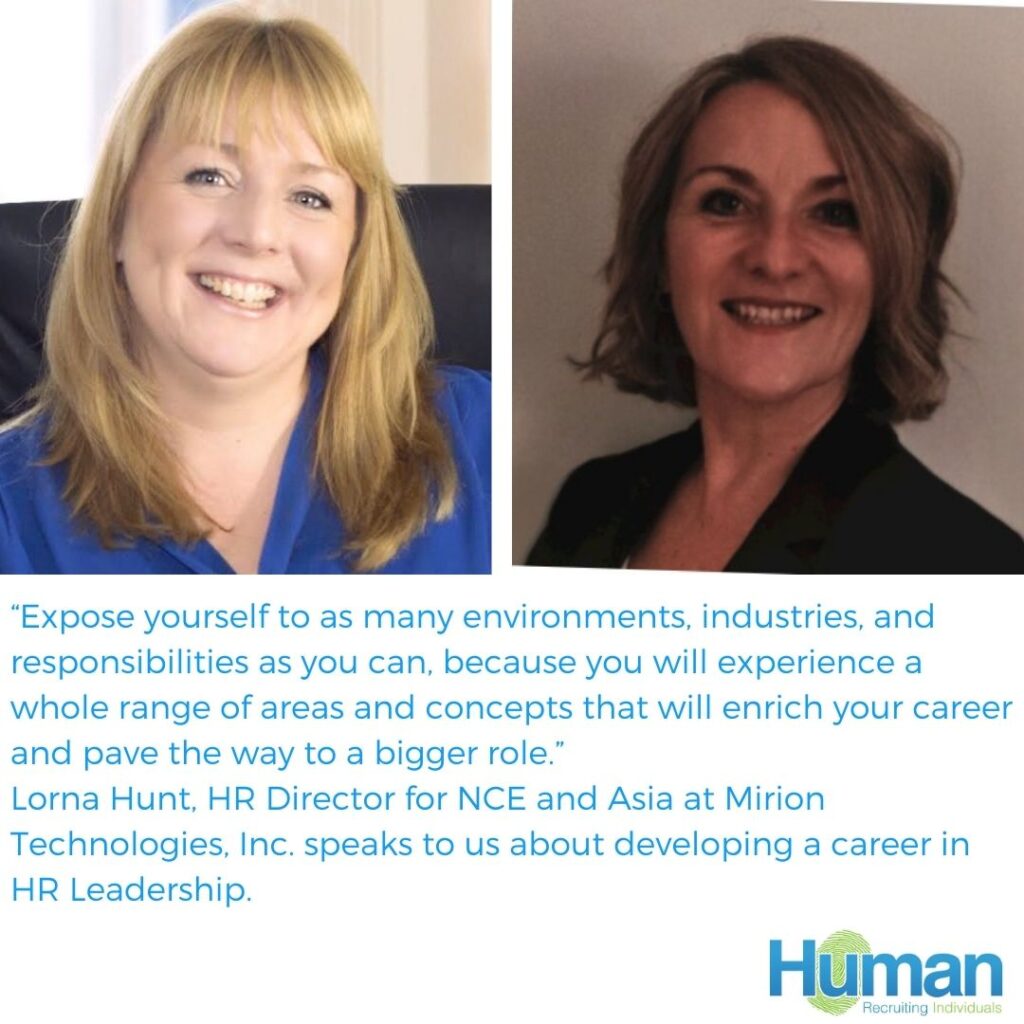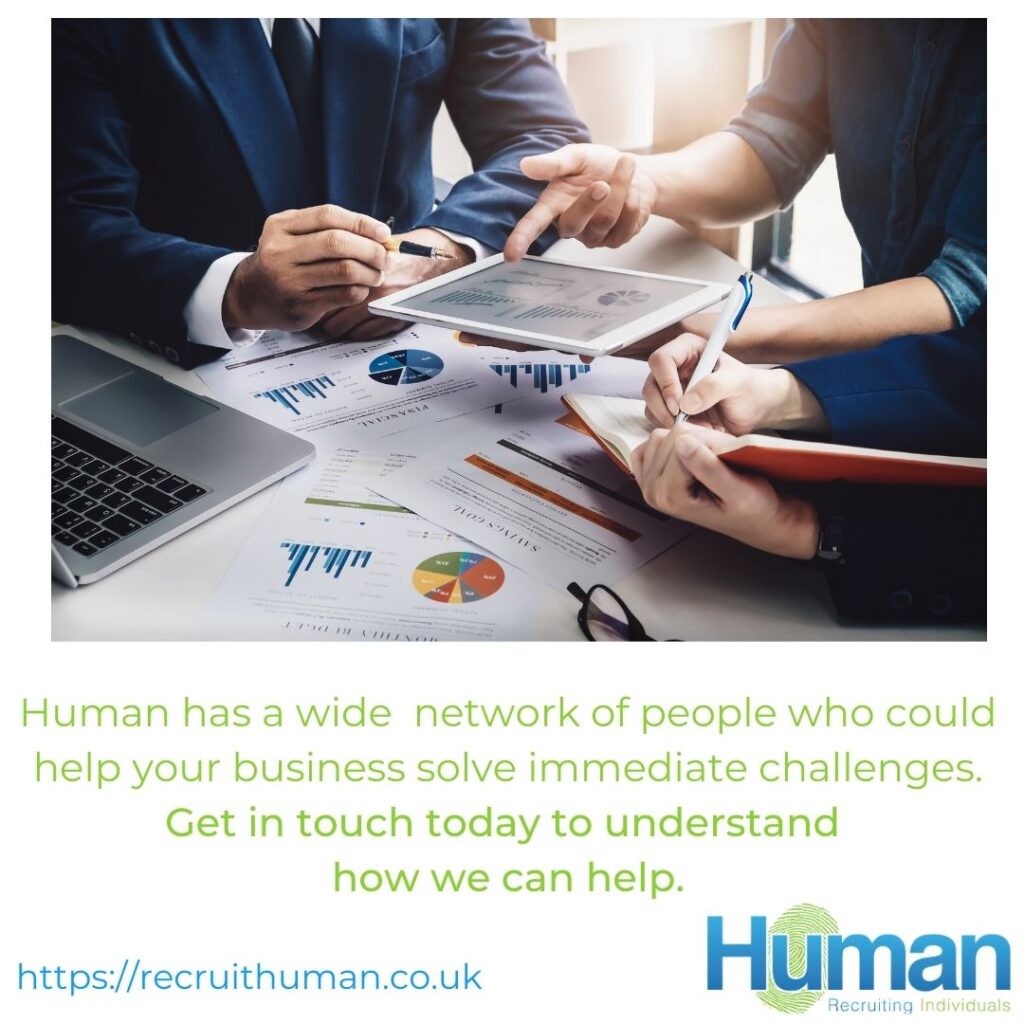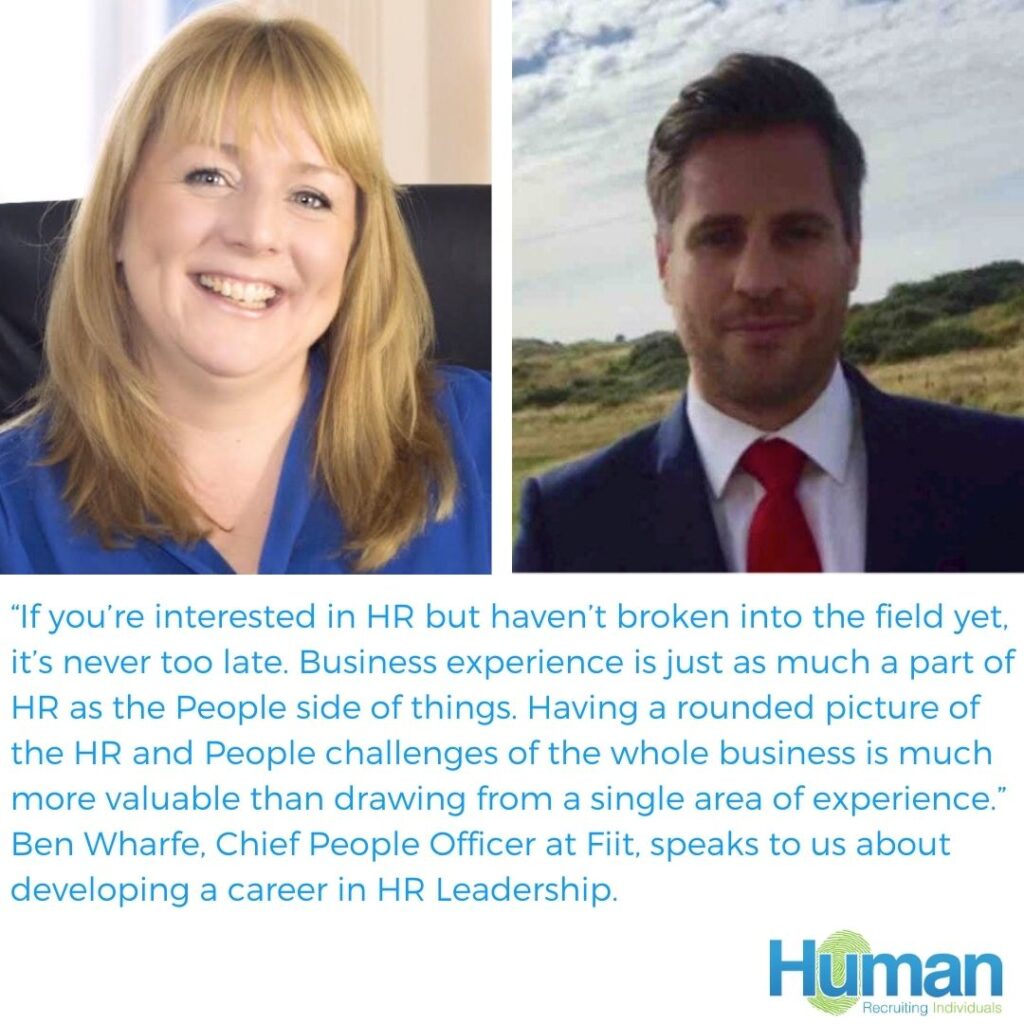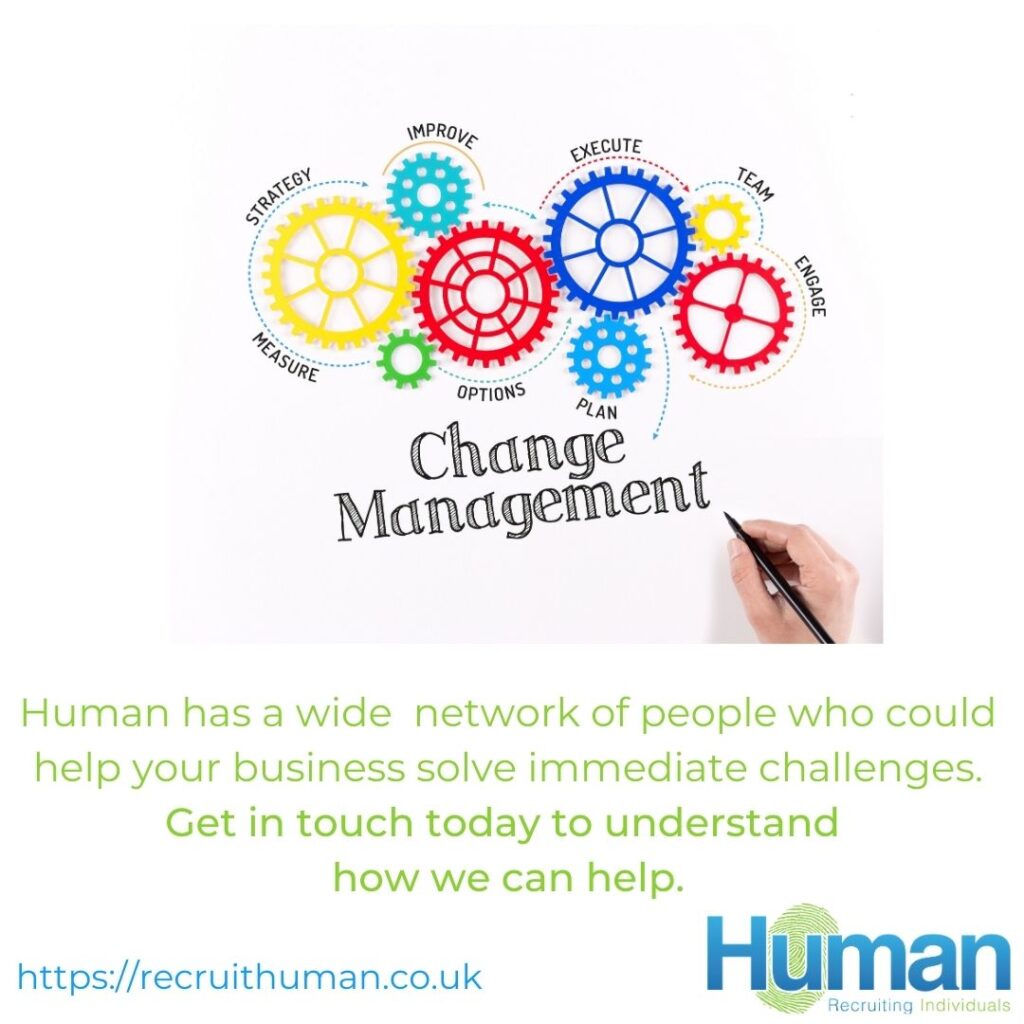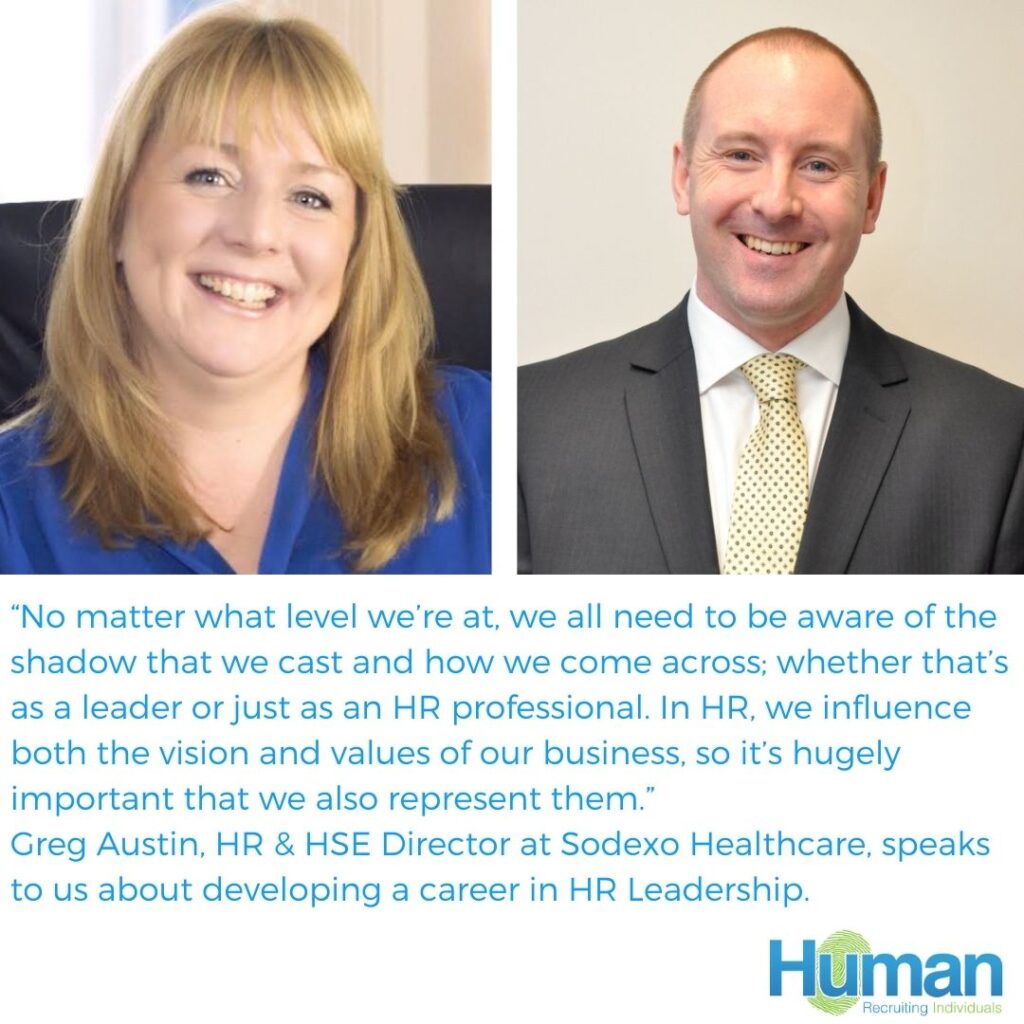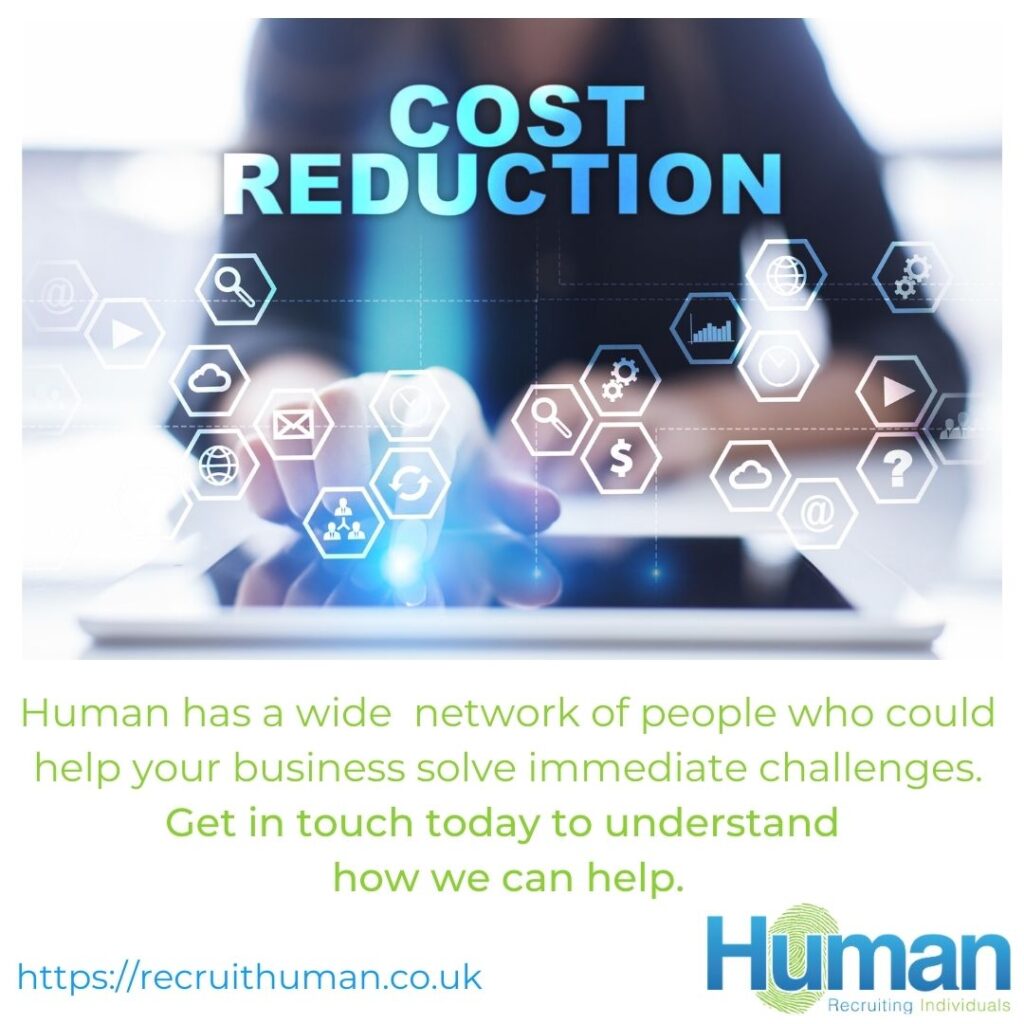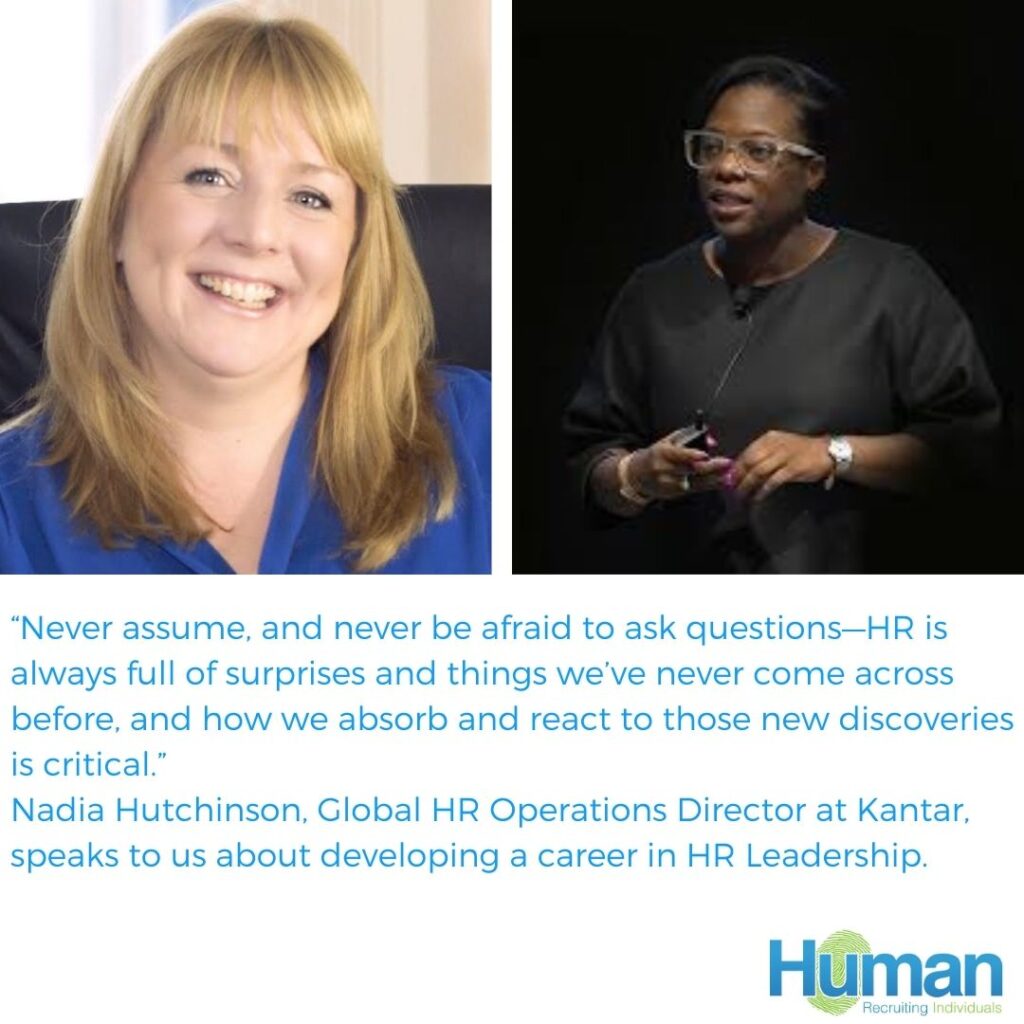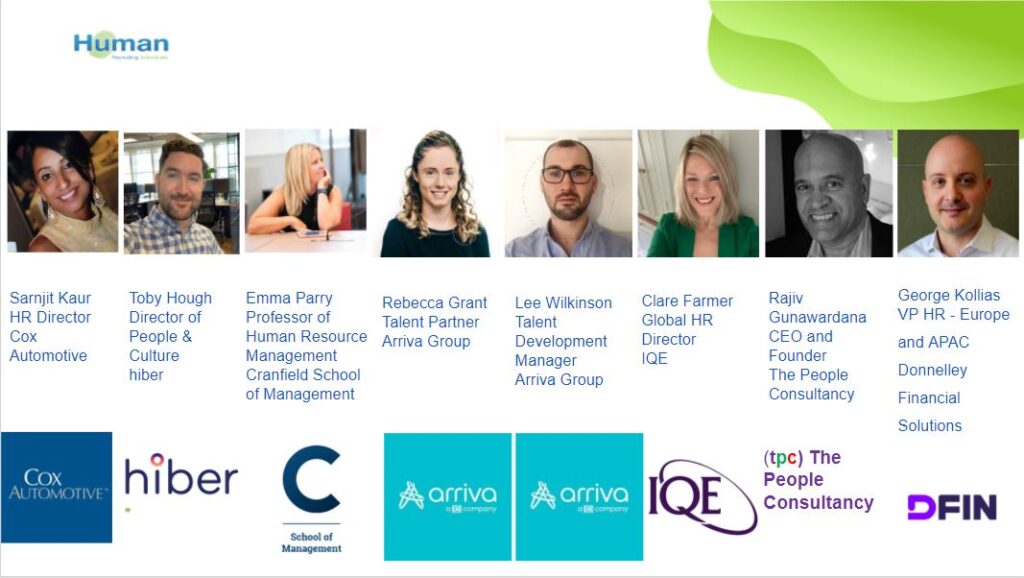“Expose yourself to as many environments, industries, and responsibilities as you can” – Interview with Lorna Hunt
“Expose yourself to as many environments, industries, and responsibilities as you can, because you will experience a whole range of areas and concepts that will enrich your career and pave the way to a bigger role.” – Lorna Hunt, HR Director for NCE and Asia at Mirion Technologies, Inc. speaks to us about developing a career in HR Leadership. As part of our commitment to supporting candidates to develop fulfilling careers, we’ve invited some HR Leaders to share the secrets of their success. This week, we had a great conversation with Lorna Hunt at Mirion Technologies, who started her HR career in an HR Administrator role at Esso, later moving into Recruitment to work in the organisation’s graduate and internship programmes. In January 1998, Lorna became HR Administration Manager at Pfizer, then transitioned to a Business Partner role ahead of later taking on the Human Resources Manager role at First Drinks Brands Ltd in May 2004. In January 2011, Lorna took on her first senior HR Leadership role as Head of HR for Europe, the Middle East and Africa at William Grant & Sons. In January 2014, Lorna took on the role of Head of Human Resources at TW Metals, where she remained until taking on the role of Senior Manager for Human Resources in TE Connectivity’s Aerospace, Defence & Marine divisions, and later transitioning to her current role in March 2020. Can you tell us how you got into HR and why? My introduction to HR was with Esso at their Fawley Refinery base in Hampshire back in the 90s. I started off in an admin role with lots of exposure to elements like change management, union activity, and employee relations, so it was a really good initial experience in HR. On top of that, with Esso being such a large organisation, there was plenty of scope for development. As part of that, I started to study for my CIPD with Esso’s support, because I knew that I really wanted to progress, which went hand in hand with learning the inner workings of an HR team. While I was undertaking that qualification, I moved into the Recruitment team attracting young talent to the graduate and internship programmes. I was travelling the length and breadth of the UK to attract really high-calibre students backgrounds by conducting interviews and supporting presentations, which was great, but quite cyclical. Once I’d finished my CIPD, I found that I was hungry for more HR exposure, so I made the decision to leave Esso and go into an HR Manager role at Pfizer. This was my first management role, and Pfizer provided great training and support to succeed. They had a strong culture and a very entrepreneurial attitude, as well as an HR Leadership team that encouraged me to take risks, be creative, try different initiatives, and learn from my mistakes. From there, I moved into a Business Partnering role in a generalist capacity, and just continued to love working in the fast-moving, exciting world of the pharmaceutical industry. In 2004, Pfizer relocated to Surrey, but I opted to stay where I was in Winchester and move into the drinks industry with First Drinks Brands and William Grant & Sons. Although I missed working in pharma, I quickly found that that fast pace I’d loved didn’t even compare with the pace of the drinks industry. It was constantly really exciting, with lots of competition, change, and opportunities to climb. My final role in the drinks industry was as Head of HR, which again was really exciting with lots of change management. William Grant actually approached me to take on a bigger global role, but I had to think of my young family and knew it wouldn’t work for me personally, so I made the difficult decision not to take it. Instead, I started to apply for other roles which would offer challenges but I also realised that manufacturing was missing from my background. To fill that gap, I moved into a standalone role with TW Metals, where I set up the HR function from scratch. That was quite a challenge, but very rewarding, and great for my experience in terms of knowing what needed to be present within an HR function, what the compliance areas were, where we could be more flexible, and how to introduce best practice. Following that, I moved to work for the aerospace provider TE Connectivity in a global role which entailed lots of integration and travel, and ultimately saw me spending a lot of time in the West Coast of the US and Mexico. It was a fabulous opportunity, but not what I wanted for myself at that point, so I made the decision to leave after almost three years. At that point, I joined Mirion Technologies, which is an organisation providing technical equipment for the nuclear industry. As HRD, although I’m based in the UK, I oversee the UK, Northern Europe, and Asia. Can you tell me about the key themes and challenges that you’re seeing across the HR sector? When I started at Mirion, there was quite a robust induction plan in place for me, but as I joined in March 2020, the lockdown started very soon after. I was able to spend my first week in Paris, but haven’t travelled otherwise—my focus very quickly changed to furloughing people and organising home working. I had also been due to hire for a support role, but wasn’t able to do that until August, so I was dealing with responding to the pandemic on my own until then, which was extremely challenging. Working in a global business, I haven’t had the opportunity to meet many people face-to-face either—including my manager, who is based in the US, and my business leader, who’s based in the South of France. I would say that I’m quite a resilient and tenacious person, which is definitely needed during this pandemic, but it’s still been tough at times. On an organisational level, the biggest

